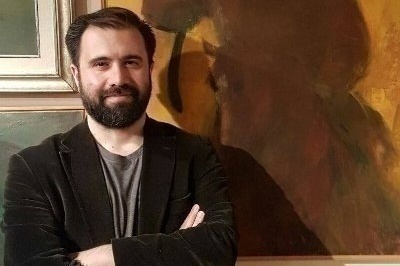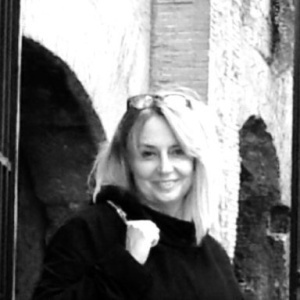We publish below an article written by Caterina Doglio, of RAI Tg1 newscast, for Gariwo.
Kerem Gulay is a Turkish citizen and a university professor in Istanbul. When the crisis breaks out in Afghanistan, he remembers that only a few months earlier, in March, he met a girl from Kabul at an international student contest. A girl whom everyone found very irritating because she was trying to win the contest at any cost, even unfairly. The professor now wonders: what will happen to that girl? He no longer thinks of her as an unpleasant girl, but as a human being in danger, somebody who, like him, has many dreams and plans, who gave all she had during the contest for her team to win...
Dreams and plans that, together with the rights of women and minorities, are about to disintegrate with the rise to power of the Taliban. Concerned about her, he asks his students to find her, but they can’t. He also asks the body that organized the contest... Nothing. The girl is nowhere to be found, she is not answering her phone. Mara Smith, an American friend and colleague, says: “You are worried about this girl and you don’t think that tens of thousands of people like her are in danger of dying?”.
It is at that very moment that the professor decides to do something. He writes to all his friends and colleagues: “Do you know anyone who needs to get out of Afghanistan? Someone in the Taliban’s sights? Politicians, human rights activists, artists, journalists, teachers?”.
He starts drawing up a list of individuals in danger, many of whom her friend Ara will point out to him, even though she has just got married and is on her honeymoon. He starts collecting names, CVs, documents....
While searching for individuals in danger, Kerem Gulay launches a fundraising campaign, as in early August he still hopes he will be able to use the money collected to buy plane tickets for everyone and then support refugees in his country, Turkey.
However, the situation plummets… it is mid-August and a crowd of desperate people are besieging the airport in Kabul, the only way to escape is indeed by military flight. At this point, the professor already has a list of over 500 people, headed (due to imminent danger) by a prominent politician and two families of lawyers and doctors. Ali Ahmad’s family and that of Mohammed (the Taliban killed his brother a fortnight earlier).
He asks all his contacts for help: prominent politicians from various European countries, but also from Canada, a country that has promised to take 20,000 refugees. He writes to several journalists from the international press. No one can or wants to help. Many automatic replies arrive in his mailbox: “X is on holiday, write in September”.
However, there is no time to waste. The professor is very disappointed, but it is no time for moodiness. He vents all his concerns to a friend of his, Italian photojournalist Piero Castellano. Piero also tries to do something. Among the people he writes to is Rai journalist, Caterina Doglio. “Excuse me Caterina” - Piero Castellano writes in WhatsApp – “I know you are on holiday on a small island in Greece, but the situation is desperate. If you could help this professor by putting him in touch with some high-profile European politicians... These people are really in great danger, sorry again for disturbing you...”.
In the last few years, Caterina has devoted much of her time to collecting and telling the stories, the voices of Holocaust witnesses. Such as those of Senator Segre, Edith Bruck, the witnesses who found the courage to explain the horrors experienced in Auschwitz to school students. She has walked with her sisters Andra and Tatiana Bucci, with Sami Modiano along the immense perimeter of the extermination camp. She has told the general public about Gariwo Foundation. A project by writer Gabriele Nissim who, inspired by the Garden of the Righteous in Jerusalem, decided to create many very special gardens by planting trees every year in memory of extraordinary though often unknown individuals: those who saved Jews during Nazism, those who managed to get involved during other persecutions, in war or in crises and, while most hesitated, chose to do their best to save the lives of people in danger.
Caterina talks to Professor Kerem Gulay, she hears his frightened though resolute voice. After receiving from him the passport photo of the Afghan politician, the woman the Taliban would like to kill, when she looks at her face, in her head she sees the documents of the Jews who tried to leave Europe during the Nazi period all the voices of the drowned and saved that she has recounted over the years come to mind...
She thinks: “I have to ask for help from people who keep their promises, someone who knows how to move and really wants to help”.
There are three people in her personal list of potential benefactors. At the top of the list is a friend and colleague, Monica Maggioni. Former president of Rai, a war correspondent, she has many contacts, she knows what it is like to be in a crisis area like Afghanistan and still knows how to be moved by her fellow human beings.
She calls her.
“Dear Moni, hi... yes, I am in a beautiful place in Greece, a pearl... but I am calling you because there is an emergency. I know I am on holiday and you are at work, I am so sorry, but I need to ask you a huge favour: we need to save this Afghan woman, a politician. And other people in danger... A friend of mine, Piero Castellano, wrote to me from Turkey. He is distressed. He says that the woman’s time is running out... the contact? He is a Turkish university professor...
No Monica, I don’t know him personally, but we don’t have much time... I googled them! She is very famous, I will send you the link to an article, but I can’t tell you much about the professor, only that Piero Castellano says he is a good person...”
Monica takes very little time to decide. She knows what war means, she knows the stories of those fleeing. She has never met them but it is as if she sees them there, before her eyes. As if she were suddenly in Kabul. She talks to the Ministry of Foreign Affairs, to the Ministry of Defence... She gathers documents.
The situation is complex: a woman politician and two men travelling with women and many children, the youngest being only six months old.
The 15 Afghans in danger appear in three lists at the same time: that of the Turkish professor, that of Italian authorities who are managing evacuations and presumably that of the Taliban who are looking for dissidents to prevent them from escaping.
In Rome, in Istanbul, on a small Greek island, a group of people set their alarm clocks every night at 2 o’clock so that they can be all operational. They have to be ready before dawn in Kabul when the signal for evacuation comes.
There is not a minute’s rest. Day and night, Monica keeps in touch with the military, who are carrying out evacuations in a high-risk situation under the leadership of General Portolano. The professor talks to Afghan families. And then again with Monica. For many days, everything goes wrong.
In Kabul, the fifteen people to be rescued never arrive at the right place, that is at the gate of Hamid Karzai airport, where the Italian military are waiting for them. Professor Kerem Gulay, who monitors the situation by telephone, is told time after time: “There is too much confusion, we had to stop a kilometre away... it is impossible to reach the meeting point at the right time... there has been a shoot-out... the Taliban are preventing them from approaching... children have fainted... women have hurt themselves in the crowd...”. Meanwhile, in Kabul, the situation is increasingly harsh. From the Afghan capital harrowing images arrive of people besieging the airport, of mothers lifting their children over barbed wire to entrust them to foreign soldiers.
The professor is patient with everyone. He does not lose sight of the goal. He sleeps a few hours every now and then. He spends all his time on the phone. He and Monica do not stop encouraging Afghan families for a single minute, making them reflect when they are about to give up. Finally the news arrives that the woman politician has managed with great cold-blood to stay put despite the shooting, she has not lost her place in front of the gate and eventually the Italian military have located and rescued her. We cannot say her name yet because her family is still in Afghanistan.
The others have fallen behind. The team is getting demoralised. There is also speculation that the two families of Mohammed and Ali Ahmad will not make it. Kerem and Monica encourage them not to give up. To find the strength to try again. Hours elapse that are full of messages, WhatsApp texts, phone calls full of anguish. Monica does not want to give up and in the meantime she thinks... “How can we identify these people in the midst of a crowd of thousands of desperate people? It is true that their names are in the evacuation list, but if they don’t make themselves known, they will never get in…”.
At a certain point she has an idea... She tells them: “Tomorrow carry a white sheet and, when you get close, open it over your heads, this will be the signal”. That is the turning point. Italian soldiers spot them, make them cross Abbey Gate drainage canal. They are at the airport, safe.
Barely eight days have elapsed since Professor Gulay sent Caterina the names and identity documents of Afghans to be rescued. Eight days in which a team was formed of people, fifty per cent of whom did not even know each other and were in different places. Istanbul, Rome, on holiday on a Greek island, in America on their honeymoon, in Kabul. In just eight days, working day and night, devising plans and solutions, amidst crying, anger, exhortations and pleas, they have managed to snatch from the Taliban fifteen people who were in danger of dying. The evacuation is over, the airport is under Taliban control, but the professor has not forgotten the other names in his list and maybe in the future more chapters will be added to this story.








